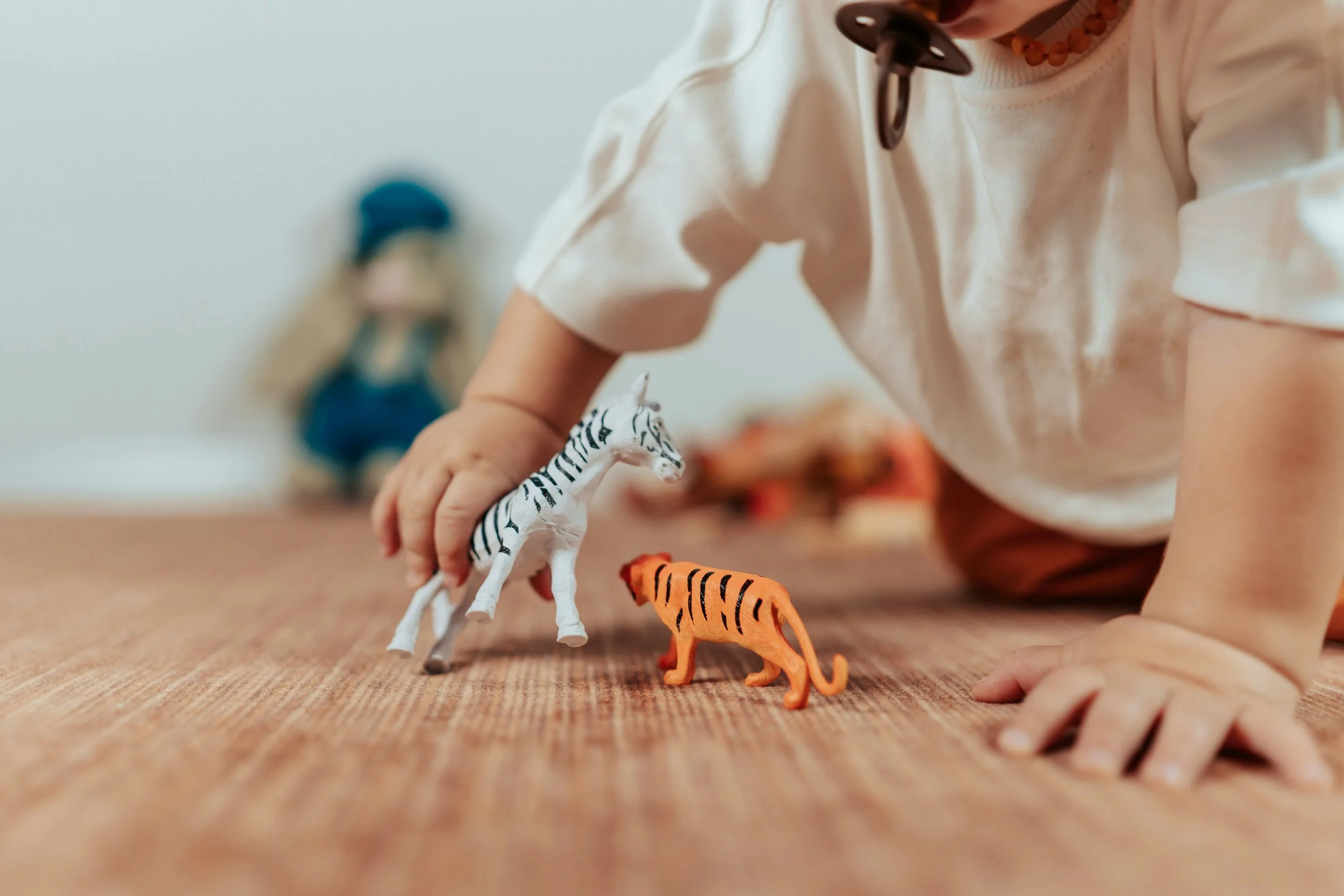
What Is Play Therapy?
Play Therapy is an amazing child-lead, evidence-based modality for children, that focuses on the child, their relationships and their experiences, drawing on interpersonal neurobiology and understanding of child development.
Play Therapy may allow your child to experience and process their feelings and needs at their own pace, using play as their most natural form of language, and toys as their words.
(Landreth, G, 2012)
Understanding Play Therapy
In simple terms, play therapy recognises that play is a child’s natural language. With the right support, play becomes a powerful tool for healing, growth, and lasting change.
Play therapy is different from ordinary play. While children naturally use play to explore and express themselves, in play therapy a qualified therapist helps a child address and resolve challenges in a safe, supportive, and developmentally appropriate way.
The therapist provides a safe environment where, through play, the child can freely express emotions, explore their experiences, practice decision-making, gain a sense of control, and begin to put words to their inner world. Throughout the process, the child is held with unconditional positive regard, accepted and supported exactly as they are.
Through this process, children can communicate more effectively, express and manage feelings, develop problem-solving skills, learn healthier ways of relating to others, and build social and emotional resilience
Because play therapy is child-led, children are free to guide the process at their own pace.
The therapist offers a safe and accepting presence, walking alongside the child as they work through challenges. In this space, children can explore even their most difficult feelings and experiences and begin to develop healthier ways of coping, that will support them throughout their lives.
Backed by Research
Child-centred play therapy is a systematic, evidence-based approach that has been used for more than 60 years. It has a strong track record of success in therapeutic work with children and is supported by extensive research.
For families who would like to explore the evidence further, the Centre for Play Therapy has created a database of research studies on play therapy and other play-focused approaches for children.
Research has found Play Therapy to be an effective therapeutic approach for a variety of children’s difficulties, including:
Difficulties adjusting to family changes and other adjustment issues.
Difficulties adjusting to school.
Sleeping issues or eating difficulties.
Separation anxiety and other experiences of worry and fear.
Aggression and acting out behaviours.
Children who may have ADHD and ADD.
Children who may have select mutism.
Children with a diagnosis of Autism - Where CCPT takes a holistic approach to therapy, and can support and enhance the child’s emotional capacity, communication, and empowerment in their world, as well as promote a feeling of genuine acceptance.
Chronic illness or experiences of hospitalisation or surgery, including premature or traumatic birth.
Bonding and attachment issues with caregiver/s or other significant persons.
Abuse and neglect.
Children who may have experienced Foster Care, Adoption or Out of Home Care.
How can Child Centred Play Therapy help my child?
Children often find it difficult to put their feelings into words, especially when they are feeling scared, worried, or sad. Instead, they may express themselves through play or behaviour as a way of showing us what is happening inside.
At Bright Seeds Play Therapy, we view behaviour as a sign of something deeper, not as “bad” or “wrong.” Through the therapeutic process, children are supported to work through their experiences, discover their own strengths, and move toward a greater sense of balance, confidence, and wellbeing.
Play therapy offers children of all ages a safe and natural way to release, express, and process big feelings in the way that works best for them. Our role is to provide gentle emotional scaffolding, creating a space where your child feels safe to go where they need to. In the playroom, we act as emotional co-regulators, tuning into your child’s inner world and helping them feel understood, supported, and safe as they explore and heal.
During our sessions, the playroom and play experience can offer a safe, predictable, and empowering space for your child. They will be supported to:
Work on developing their emotional resilience and capacity.
Form a greater sense of self-confidence and self-respect for themselves and others.
Form the confidence to re-enact, recreate and play out some of their inner experiences in the playroom, creating new and positive brain neural pathways and connections.
Help them form healthier ways to communicate and cope in the real world.
Learn new social skills and relational skills with family.
Develop new and creative solutions to problems.

WANT TO hear our story?
Click the button below to meet the beating heart behind Bright Seeds Play Therapy.



